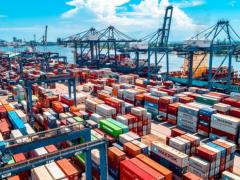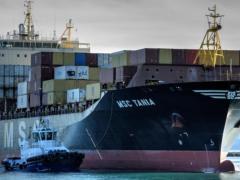Local freight forwarders in Mozambique continue to call for stronger measures to protect their businesses from the growing dominance of multinational companies expanding into the sector. According to Desiderio Fernandes, president of the Federation of Clearing and Forwarding Associations of Sovereign Africa (FCFASA), the concern is not only about the inability of smaller operators to compete, but also about the broader impact on government revenue. “In the past, customs brokers handled declarations and freight forwarders managed the physical movement of goods,” he explained. “The reality now is that some customs brokers are infringing on freight forwarding activities, transporters are moving into freight forwarding, and shipping lines are doing the same. Where does this leave our small and medium-sized local businesses?” Fernandes said the issue had once again been raised at a recent national meeting in Beira attended by the Mozambican minister of transport. “There were heated discussions, and it became clear that the industry needs to clean house. It was perhaps also a wake-up call for government, because the reality is that the country is losing revenue.” He warned that the move by shipping lines and other large players to dominate the entire supply chain amounted to a form of protectionism. “We’re seeing cases where a single company controls the supply chain from start to finish – operating as the port operator, freight forwarder and transporter. How can there be fair and competitive pricing in such a scenario?” Fernandes noted that local freight forwarders simply could not compete in a market where multinational companies controlled multiple points of the logistics chain. “More than anything, it’s uncompetitive,” he said. He added that while a government decree remained in place prohibiting companies from handling both cargo clearing and shipping – requiring a third-party clearing agent – the legislation was currently under review. “Government has undertaken to consider all stakeholder inputs, both for and against the decree,” Fernandes said. “Our hope is that serious measures will be taken to ensure businesses remain focused on their core services. This is standard practice elsewhere in the world, so why not in Africa? Clearly defining what constitutes each industry’s core activities will bring better accountability, improved revenue collection and less violation of competition laws. With that, we can achieve collective growth across all sectors.” LV
Multinationals threaten forwarders
Comments | 0












